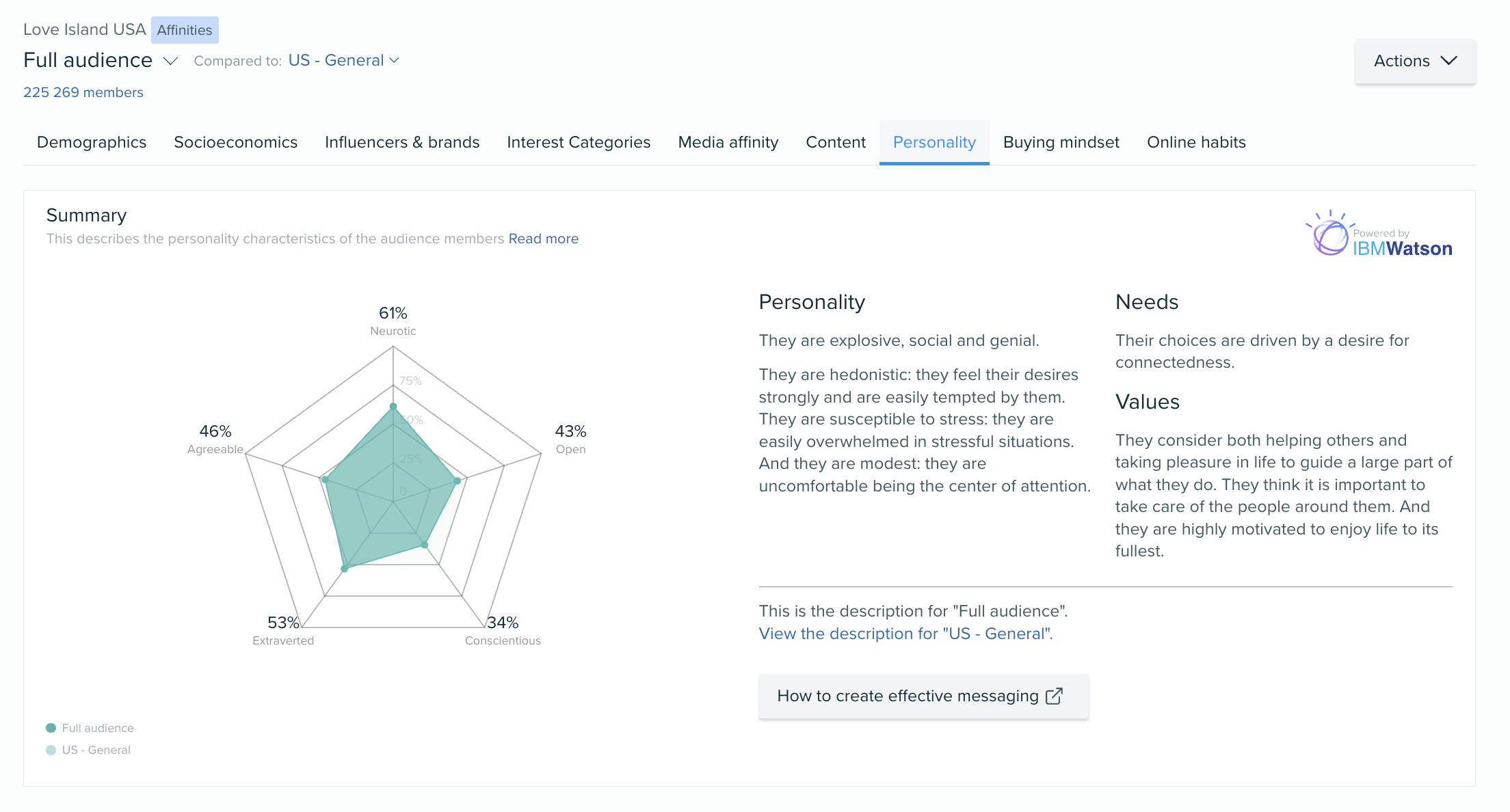Love Island and the trend towards low stakes high drama tv
Mama? Mamacita?
If this means nothing to you then you probably don’t watch Love Island – so let’s start with a quick description of the show (if you do watch, then skip to the next paragraph).
The premise of Love Island USA is simple - it’s a show about a group of “sexy singles” who live together in a villa on an island. The singles couple up to stay on the show, and those left single are at risk of being dumped from the island (viewers can also vote to save or eliminate people). And if that weren’t crazy enough, new bombshells are introduced throughout the show to stir things up (“A hot new bombshell has entered the villa...”). The final winning couple (which is chosen by the public) splits a prize of $100K.
But really, it’s just trash TV at its finest and it requires zero brain cells to watch ...and people absolutely love it.
It’s the number 3 top viewed series right now:
In a world where we’re all half watching shows while we half watch our phone at the same time, our attention spans are shot. But shows like Love Island are keeping viewers engaged all the way through.
How? That’s what we’ll explore in this post. The trend towards low stakes high drama TV and of all the shows out there, how this style of TV series is keeping audiences dialed in.
It’s built to hold your attention
A show like Love Island has a consistent flow of new drama. Between the new “bombshells” that show up throughout the episodes, and the surprise recouplings, it keeps viewers glued to the TV.
It also gives drama in small doses throughout the episode – like petty fights, flirting, and the absolutely priceless quotes:

It’s the type of show that you accidentally get invested in because you can’t look away, and then it makes you question your own level of intelligence.
It's habit forming
Love Island airs every day (except for Wednesdays), so people get into this sort of habit of watching it every night after work – and this suits audience “watching” preferences.
When we look at the main audiences that Love Island attracts using Audiense, we see this Marathon Watcher segment emerge. These are people who love watching a full series in their free time, and Love Island fulfills this with 33 episodes total. Most series we see a limit of 10 episodes these days, and that’s not enough for most viewers.
Download the “Marathon Watcher” audience now, and get insights on how to target them.

Another key segment within the Love Island audience is The Fan (Fan Spectrum) group that is characterized as individuals who demonstrate clear investment and regular interest – so just like the Marathon Watchers they are the ones watching the show every day, forming that habit. This is why Love Island sees such little audience drop off throughout the life of their show.

But this Fan group is special because they don’t just watch the show, they actively promote it. This is such a valuable segment to have in your audience as a show – they fuel organic growth, they’re the ones buying merch, using the app, attending live events etc. AND they keep your community alive in-between the seasons of the show.
They are your superfans, and every show should hope to have them. Discover your high value segments with Audiense.
It’s low effort, high reward
The show might sound stupid, but it’s not for stupid people – it’s for people trying to shut off their brain after a long day at the office.
In fact, we even see a “historian” segment in the Love Island audience using Soprism. This segment is defined as “individuals who are passionate about history and enjoy learning and exploring the past through cultures, tradition or folklore” - probably not who you were expecting to also enjoy Love Island, but they do.

Plus our Audiense Insights report tells us that the majority of this audience are College grads, further proving that the Love Island audience is in fact highly educated.

So why do people with a high IQ gravitate towards this show? Well, shows like Love Island can be relaxing to people who just want to escape the workings of their brain for an hour, and watch people have conversations like this:
It’s a show that requires little to no effort (on your brain) and has a high reward in the sense that it helps audiences escape, laugh, and enjoy an hour of watching America’s finest. Think of it as providing audiences with a “brain break.”
It brings people together

Love Island is known for bringing people together through:
- Watch parties: when new season comes out viewers host parties at their house where they all watch the new season together, and even restaurants have been known to host watch parties
- Memes/ TikTok clips: people love to create memes of the funniest scenes in the show
- Online discussions: there are full Facebook and Reddit groups dedicated to talking about the show

Audiense tells us that the majority of the Love Island audience is married – so many will watch the show as a couple:


When we look at what matters most to the Love Island audience within the Audiense platform, it’s their need for connectedness – this show gives them that, so it’s no wonder that season after season they remain loyal viewers.

It’s easy to think that watching TV at home is actually keeping you from being social, but a show like Love Island encourages it, and that’s a key reason why people are so excited about it – how many shows do you know that can do that?
It incorporates your phone
Forget trying to keep viewers off their phone, Love Island producers have accepted that they are on them 24/7, so they have incorporated phones into the show.
Fans can vote on their favorite couples, but beyond that the Peacock app offers quizzes, games and other interactive features to keep fans engaged in between episodes.
And this strategy has paid off – since launching in May ahead of Love Island season 7, the Peacock app averaged 100,000 new users per day and has added over a million new users in total thanks to the Love Island mobile games.

More shows should accept that 95% of people are on their phones while watching, and come up with creative ways to still keep them engaged, that’s the future of TV.
People love the cast
We’d be remiss if we didn’t mention the cast – people LOVE the cast. What’s not to love – they're relatable, hilarious, and most importantly... they’re attractive. Audiences love that it’s a cast filled with hot, fit, single people all flirting with each other.
The cast is also there looking for love and we’ve all been there – audiences find this endearing and relatable. And let’s be real they are also looking for more Instagram followers and a cash prize, but audiences are willing to look past that.
Just look at the following the cast from this season has; many of them with 1 million+ followers. This is a screenshot taken from our Demand platform.

Their following demonstrates just how popular this show really has become and how valuable the exposure is to the cast. A fan favorite, Huda Mustafa, gained 2.4 million new followers during the last month of the show.
What does this mean for streaming services?
Love Island is a prime example of why streaming services should keep investing in low stakes high drama reality TV. Hulu did this with The Secret Lives of Mormon Wives and people couldn’t get enough of it. Mormon Wives also showed that there is an appetite for more niche forms of reality TV (like people watching a bunch of Mormon wives in Utah in their everyday lives).
Reality TV should be taken seriously (in the business sense anyways) as it now captivates 80% of US households – and the market is valued at over $30 billion.
The reality is that people are looking for trash TV and streaming services should be buying up or producing shows that are high drama, relaxing on the brain, incorporate our phone, and bring people together online – and of course a hot cast doesn’t hurt.
If you look at the top shows by each streaming service - “90 Day: Hunt for Love” is Discovery+’s top earner – not the obvious choice for the Discovery channel, but they’re adapting to what their viewers want to see, and every streaming service should follow suit.

This is all to say that shows like Love Island aren’t going anywhere – in fact they are only going to get bigger. So start paying attention to them, and the audiences behind them.
Audiense makes it easy to dive into these Reality TV obsessed audiences and use the insights to create shows they will become addicted to – run your own Audiense report now.






